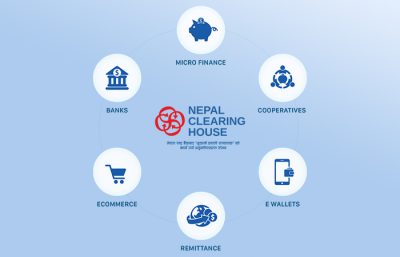National Payment Switch (NPS) is the core infrastructure for routing and settlement of retail transactions to ensure interoperability of card and non-card-based payments within Nepal. It includes Retail Payment Switch (RPS) for handling retail (non-card) based transactions and retail instruments, whereas National Card Switch (NCS) includes card switch and domestic card scheme.
RPS is an operational real-time retail payment switch with additional instruments to support VPA-based payment, Request To Pay-based pull transactions, interoperable QR, biller gateway, wallet interoperability, and PSO settlements. Card switch and domestic card scheme are currently under implementation.
All the instruments and use cases of RPS are extended through NPI, which is an open API for the members to extend and integrate with its system and /or channels.
NEPALPAY Instant is a virtual payment address (VPA) based direct credit instrument. A sender can initiate a transfer based on an identifier of the beneficiary, which could be mobile number or email id or any other identifier. This reduces a need of exposing bank accounts for fund transfers, either for P2P transfer or B2P payments. This allows the customers to initiate transfer or payment from their respective channels mobile/internet banking or wallet or connectIPS or any other service providers directly into beneficiary’s account or wallet based on VPA.
NEPALPAY QR is an implementing infrastructure of NepalQR as per the standards of published by Nepal Rastra Bank. It works as an independent domestic QR scheme and also supports QR interoperability at merchant level and inter-network level. It enables members to issue and acquire static, dynamic and gateway-based QR for its merchants. APIs and interfaces for Issuers and Acquirers are available for the member BFIs or PSPs with additional arrangement of merchant management system for the members.
NEPALPAY Request is a direct debit Instrument (pull transactions) whereby a receiver can request for a payment, by generating a non-financial message, which upon approval (automated or for each request) by the payer will initiate a payment. It can be event-based Request-to-Pay (R2P) for P2P transfer or B2P where payee can use any of the digital platform (Mobile Banking, Internet Banking, Digital Wallets, connectIPS, CORPORATEPAY or NPI) and send payment request to concerned payer. Upon confirmations from the payer, a transaction is processed seamlessly.
NEPALPAY Request also supports recurring e-Mandate payments for a specified frequency and time period, whereby on due date the standing instruction amount will be debited from the payer and credited to payee. E-Mandates can be used for recurring service payments as an option for AutoPay or AutoDebit. NEPALPAY Request can also act as an Account Tokenization, where a bank account can be linked to a particular payment platform as account tokens and the same token will be used for the financial transaction.
This enables interoperability between the multiple PSPs and wallets, whereby fund transfers from one PSP to another can be done with ease. It also allows the BFIs and other service providers to access and transfer funds to any PSP from a single platform without the requirement for individual integration.
It enables service interoperability by providing bundled service APIs for integration in any of the alternative digital channels used by the customers. It works on a concept of global merchants/ creditors, whereby such services acquired in the network by any of the member will be available for rest of the members and their customers to consume, including the non-conventional services. This reduces multiple acquiring and eases integration within issuing instruments.
This allows the PSO to execute their final settlement of their participating BFIs at RTGS through NCHL. The net clearing position of a PSO or similar entity will be processed through NPI and settled at the central bank’s fund of the respective BFIs. This reduces the requirement to arrange for multiple funding for each PSO and reduces the settlement risk for such PSOs.
Building a Digital Nepal
#NationalPaymentSwitch
#NPS #NCHL #DigitalNepal #DigitalTransformation
